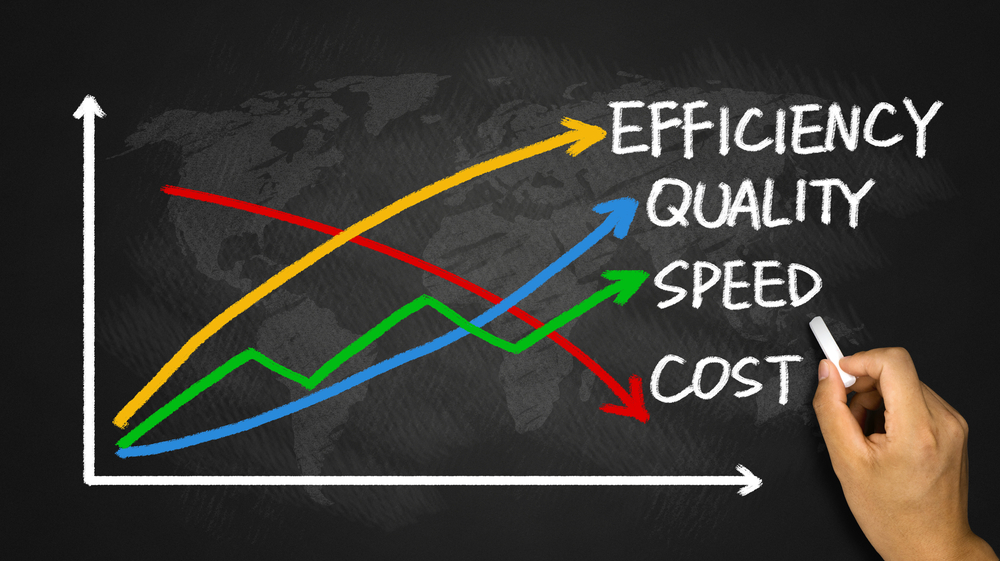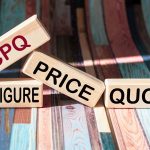
Efficient product costing management is vital for manufacturers to stay competitive in their respective industries. No matter if you manufacture uniquely designed coffee tables or custom entry doors, it factors into your company’s financial health and profitability.
Navigating the complexities of product costing can be quite challenging for manufacturers. Fluctuations in expenses, production process variables, and insufficient data management are just a few obstacles that some may face. However, companies can overcome these challenges with the right strategies and efficient systems in place.
Read further to gain a better understanding of the difference between product cost and product costing. Uncover common product costing challenges and how efficient product costing management leads to increased optimization and profitability for your company.
What is Product Cost?

The sum of direct materials, direct labor, and manufacturing overhead gives the total manufacturing cost of the product.
Product cost refers to the total cost incurred by a company to manufacture or acquire a product. It encompasses all expenses associated with manufacturing a single unit. These expenses range from raw materials and labor to overhead and indirect costs. Product cost is a fundamental metric for businesses as it directly impacts profit margins and pricing decisions.
- Direct Materials: These include the raw materials or components directly used in manufacturing the product. Direct materials costs include the purchase price of materials and any shipping or handling fees associated with acquiring them.
- Direct Labor: This refers to the cost of labor directly involved in the manufacturing process. It includes wages, salaries, benefits, and other expenses for workers who directly contribute to making the product.
- Manufacturing Overhead: Overhead includes all indirect costs associated with production that cannot be directly traced to a single unit. This encompasses expenses such as factory rent, utilities, depreciation of machinery, maintenance, supervision, and other indirect labor costs.
Product cost is essential for determining the cost per unit and making pricing decisions. By accurately calculating product costs, you can set prices that cover production expenses while remaining profitable.
What is Product Costing?
Product costing is the process of determining the total product cost incurred to manufacture or acquire a product. It includes assigning costs to each stage of the production process for measurement. Product costing is essential for financial planning, pricing decisions, and assessing the profitability of products.
There are several methods used for product costing, including:
- Job Order Costing: This method is often used when products are manufactured in batches or individual jobs. Costs are assigned to each job based on the materials, labor, and overhead incurred during production. Job order costing is commonly used by custom manufacturers. Examples include custom blinds, ETO machinery, and make-to-order cabinets.
- Process Costing: Process costing is used when items are produced in a continuous or repetitive manufacturing process. Costs are allocated to each process or department within the production cycle. They are then averaged over the total number of units produced. This method is suitable for companies with standardized, homogenous products like chemicals, food, or pharmaceutical industries.
- Activity-Based Costing (ABC): ABC assigns costs to products based on the activities and resources consumed during their production. First, the cost drivers for each production process activity are determined. Then cost allocations are measured based on the usage of these drivers by each product. ABC provides a more accurate representation of product costs by analyzing specific activities that drive costs within the organization.
- Standard Costing: Standard costing sets predetermined standards for material, labor, and overhead costs, and then compares actual costs to these standards. Variances between standard and actual costs are analyzed to identify areas of inefficiency or cost overruns. Standard costing provides a benchmark for evaluating performance and controlling costs within the organization.
Common Product Costing Challenges in Manufacturing
Manufacturers often encounter product costing challenges during calculation. These typically stem from complex production processes, cost fluctuations, and inadequate financial management. Here are some common challenges:
Complex Manufacturing Processes
Manufacturing processes can be intricate, involving multiple stages, various materials, and diverse labor requirements. It can be difficult to track and allocate costs accurately. This is especially true for companies with diverse product lines or customized offerings.
Cost Variables
Fluctuations in the cost of raw materials, labor rates, and overhead expenses can pose challenges to accurate product costing. Manufacturers must continuously monitor and update cost data to reflect changes in market conditions, supplier pricing, and internal factors affecting production costs.
Estimating Costs for Customized Products
For make-to-order manufacturers or those producing highly customized products, accurate cost estimations can be particularly challenging. Each order may have unique requirements, making it difficult to predict the cost of materials, labor, and overhead accurately.
Allocating Overhead
Overhead product allocation can be complex, as these expenses often support multiple activities and departments within the organization. Determining the appropriate allocation method and accurately assigning overhead costs to products requires careful analysis and consideration.
Supply Chain Integration
Manufacturers rely on a network of suppliers and vendors to source materials and components for production. Supplier pricing, lead times, or quality changes can greatly impact product costs. Therefore, it is essential to integrate supply chain data into the product costing processes.
Maintaining Data Accuracy
Accurate data that is up-to-date from sources like inventory levels, labor hours, and production reports is necessary for product costing. Ensuring data accuracy and consistency across different systems and departments can be challenging, particularly for companies with manual or disparate data management processes.
Technology and System Limitations
Outdated or inadequate technology systems may hinder manufacturers’ ability to perform sophisticated product costing analyses. Limited integration between ERP, inventory management, and financial systems can lead to data silos and inefficiencies in cost tracking and analysis.
Regulatory Compliance
Compliance with regulatory requirements, such as accounting standards or industry-specific regulations, can add complexity to product costing processes. Manufacturers must ensure that their costing practices adhere to relevant regulations and reporting standards, which may require additional resources and expertise.
Variance Analysis
Variance analysis involves comparing actual costs against standard or budgeted costs to identify discrepancies and underlying causes. Analyzing and managing variances effectively requires robust reporting and analytics capabilities, as well as proactive measures to address cost overruns or inefficiencies.
Continuous Improvement
Product costing is not a one-time activity. It requires ongoing review and optimization to remain accurate and relevant. Manufacturers must continuously seek opportunities for cost reduction, process improvement, and efficiency gains to remain competitive in the market.
By overcoming these challenges, manufacturers can enhance their ability to determine accurate product costs, optimize operations, and maintain their competitive edge.
10 Paths to Efficient Product Costing with Frontier ERP
Enterprise Resource Planning (ERP) systems play a crucial role in managing manufacturing costs and product costs. Frontier ERP offers powerful features and tools for you to efficiently manage your product costing and your business processes. Key features include:
1. Real-Time Data Analytics
Frontier ERP provides real-time data analytics capabilities, allowing you to monitor key performance indicators (KPIs) related to manufacturing costs. By identifying trends and outliers, you can make data-driven decisions to optimize costs and improve profitability.

Frontier ERP software includes an integrated financial module for more efficient product costing management.
2. Integrated Financials
Frontier ERP includes a fully integrated Financial Management module. This allows you to seamlessly synchronize manufacturing costs with overall financial data. This integration enables accurate financial reporting and analysis, providing insights into cost variances and profit margins.
3. Costing Methods
Frontier’s Financial Management module also supports various manufacturing cost accounting methods such as standard costing, actual costing, and activity-based costing. You can readily assign costs to products based on factors like materials, labor, and overhead.
4. Cost Tracking and Analysis
Frontier ERP provides robust tracking and analytic tools for costs associated with manufacturing processes. This includes direct costs such as materials and labor, as well as indirect costs like overhead expenses.
5. Forecasting and Planning
ERP systems offer forecasting and planning capabilities that help businesses anticipate demand, optimize production schedules, and allocate resources efficiently. By aligning production with demand, you can minimize excess inventory and associated costs.
6. Bill of Materials (BOM) Management
Maintain detailed BOMs that outline required production components with Frontier’s Product Data Management (PDM) module. With access to both product information and financial data stored within the ERP, you can perform more precise calculations of product costs and devise effective pricing strategies. By aligning pricing decisions with actual production costs, you can enhance profitability and drive improved financial outcomes for your business.
7. Sales Order Management
Frontier ERP facilitates the creation and management of sales orders. The sales order module automatically accesses production scheduling and specifies materials and resources needed for production. By tracking labor and machine hours against production orders, Frontier accurately calculates manufacturing costs.
8. Inventory Management
Effective inventory management is vital for controlling manufacturing costs. By providing real-time visibility into inventory levels and demand forecasts, Frontier ERP helps you optimize inventory levels, minimize stockouts, and reduce carrying costs.
9. Quality Control
Frontier’s foundational Manufacturing Execution System (MES) features for shop floor management help identify and address issues early in the manufacturing process. By minimizing defects and rework, businesses can reduce manufacturing costs and improve overall product quality.
10. Compliance and Regulatory Support
Compliance with industry regulations and standards can have cost implications. By automating compliance processes and records with Frontier, you can avoid penalties and mitigate risks associated with non-compliance.
Conclusion
Efficient product costing management is important for manufacturers striving to optimize their business and maximize profitability. Despite the challenges, you can overcome obstacles with the right strategies and systems in place. Accurately understanding product costs and implementing effective product costing methods allow you to gain valuable insights into your production costs. These insights enable informed decision-making, optimal pricing strategies, and improved resource allocation.
You can accurately determine product costs and enhance your profit margins by embracing these steps for efficient ERP product costing management. Leveraging ERP systems like Frontier provides you with powerful tools to streamline product costing management for business success.
Confidently manage product costing and unlock new opportunities for growth and success with Frontier ERP as a trusted partner. To learn more or see a demo, contact us today.
FAQs for Efficient Product Costing
These FAQs address key questions about efficient ERP product costing management. Learn the importance of product costing and how it differs for make-to-order manufacturers. Discover examples of direct and indirect costs. Learn how Frontier’s top manufacturing ERP system can streamline your product costing procedures for greater profitability.
What is the difference between product cost and product costing?
Product cost refers to the total cost incurred in the manufacturing of a specific product, including both direct costs (such as materials and labor) and indirect costs (such as overhead). Product costing, on the other hand, is the process of calculating and assigning these costs to individual products.
What is the importance of efficient ERP product costing?
Efficient ERP product costing management is crucial for manufacturers to accurately determine the cost of making products, which directly impacts profitability and pricing decisions. By effectively managing product costs, businesses can optimize operations, improve financial performance, and maintain their competitive edge.
How does product costing differ for Make-to-Order (MTO) manufacturers?
Product costing for make-to-order (MTO) manufacturers may differ from other manufacturing environments. Product customizations and variances open the door to challenges in estimating costs accurately. MTO companies need to consider supply chain dynamics and flexibility when fulfilling customer orders. This consideration can also affect the estimating process.
What are examples of direct manufacturing costs?
Direct manufacturing costs include expenses that directly contribute to the production of goods. Expenses can include raw materials, direct labor, manufacturing supplies, and subcontracted manufacturing costs. Other costs, like shipping, customs duties, and labor benefits, could also be included. Import taxes, overtime, and tooling/equipment costs may be considered as well.
What are examples of indirect manufacturing costs?
Indirect manufacturing costs are expenses necessary for the overall operation of the manufacturing facility but not directly attributed to specific products. Also known as overhead costs, examples may include factory rent or lease, utilities, depreciation, maintenance and repairs, insurance, and property taxes. Shop management, quality control and inspection, material handling and storage, and indirect labor are also factors.
How do ERP systems help with efficient product costing management?
ERP systems provide helpful tools for cost tracking and analytics. BOM, sales order and inventory management, costing methods support, integrated financials, real-time data, forecasting, and planning are some features of Frontier’s robust ERP system. Leveraging these features helps businesses streamline operations, reduce costs, and enhance profitability.



